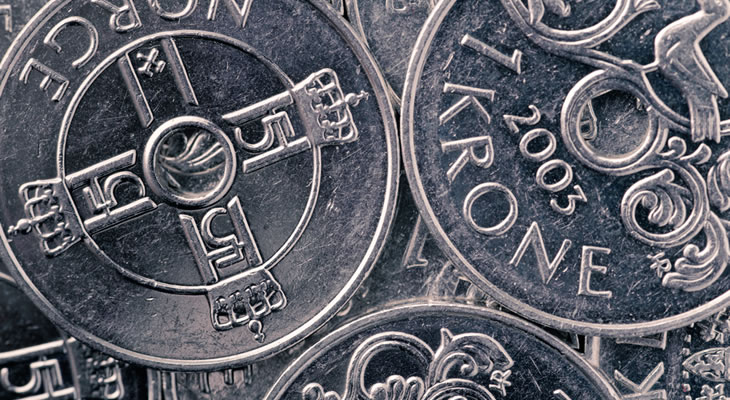The Pound Sterling to Norwegian Krone advanced strongly on Wednesday afternoon as oil prices fell and sentiment towards riskier commodity based assets declined ahead of the emergency meeting of European Finance Ministers.
Earlier the Pound Sterling to Norwegian Krone (GBP/NOK) exchange rate gave up early gains on Wednesday as data released by Statistics Norway showed that the Scandinavian economy strengthened unexpectedly in the final quarter of 2014.
The GBP/NOK exchange rate hit a session High of 11.685
According to the data, Norway’s economy expanded by 0.9% in the fourth quarter of last year, beating the 0.6% figure forecast by analysts and was better than the 0.5% increase seen in the third quarter.
On a year on year basis, the Norwegian economy grew at a pace of 3.2%, a sharp rise from the 1.8% expected.
Seasonally adjusted GDP, excluding oil, gas and shipping still enjoyed expansion of 0.5% despite the sharp falls in oil prices.
The cause for the positive figure was a 3.4% rise in exports, a 2.5% rise in activity in the shipping and petroleum industry and a 1% rise in consumer spending.
‘The increase in the fourth quarter was primarily pulled by exports of machinery and other equipment as well as chemical and mineral products. Preliminary figures show growth in exports of services in the fourth quarter,’ said the Oslo based statistics agency.
The surprisingly strong data has led to economists suggesting that the nation’s central bank will not be in any hurry to cut interest rates further in the short term. In the long term, however they believe that the impact of low oil prices will begin to make its presence felt by the summer.
Risk sentiment preventing Krone Rise
Despite the strong GDP data, the Norwegian Krone was little changed against the Pound and remains under pressure from concerns over Greece’s situation and weak oil prices.
An emergency meeting of the European Union’s finance ministers is due to be held later in the day and speculation is growing that the European Commission could propose a six-month extension to Greece’s existing bailout programme. Athens however could reject the offer and instead ask for a loan to cover its funding needs until September, a proposal that the Germans are likely to reject.
The Krone and other riskier assets could advance if it appears that the two sides will reach a deal.
‘At the moment, it seems European leaders and Greece are willing to meet each other in the middle and this has comforted investors’ concerns after the aggressive tone by Greek Prime Minister Tsipras over the weekend. However, some key officials have attempted to pour water on suggestions a plan for Greece was close. This includes German Finance Minister Schaeuble who suggested there is little room for negotiation,’ said an economist from IG.

